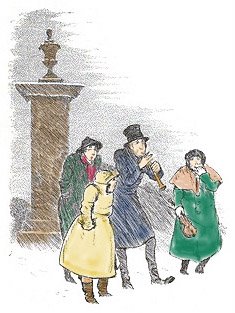President Obama and others are talking tax reform – featuring, of course, lower income tax rates. But thanks to
the chart Jim Gust showed us, we know the rates don't matter. Decade after decade, high rates or low, federal tax collections (mainly the income tax) have amounted to roughly 18% of GDP.
Why did the punitive income-tax rates of the 1950s and early 1960s bring in no greater share of GDP than in 1987, when the listed top rate dropped to 28%? For the benefit of those born after the baby boom, let us count the ways:
 1. "I expense everything."
1. "I expense everything." Circa 1960 somebody actually said this to me. He tied vacations to business trips, drove a company car and rarely ate a meal that lacked a business purpose. (If he were a Midwesterner required to hang out at corporate headquarters in New York, he might have lived tax free, in housing provided "for the convenience of the employer.")
2. Genuine deductions. All loan interest was considered akin to business expense, hence deductible. Medical expense was deductible from dollar one, as were most state and local taxes.
 3. "Daddy's little taxpayers."
3. "Daddy's little taxpayers." Through gifts in trust, parents could shift investment income to their kids. In those days kids were regular little taxpayers, with their own exemptions and entitled to their own low tax brackets.
4. Ten-year trusts. A chap named Clifford didn't want to shift too much of his portfolio to his kids. He funded a trust that paid income to his little taxpayers for a few years, then the trust principal reverted to him. The IRS didn't buy that idea. Neither did the court, saying in effect: "You can't shift income so easily. An income-shifting reversionary trust would have to last much, much longer. Ten years at least!"
Ta da! Twitter and texting didn't exist in those days. Must have taken close to a week for tax practitioners nationwide to start drafting ten-year reversionary trusts.
5. Corporate retirement plans. As pension plans multiplied after World War II, profit-sharing plans, thrift plans and other variations emerged. Much of the investment wealth accumulated by high-income individuals was sheltered within such plans, growing tax free until drawn upon.
•
Tax rates do matter, of course. But no more or less than the tax base on which they are levied. If a high-income taxpayer of fifty years ago paid 90% on his top $100 of income, his tax came to $90. If he expensed, deducted, shifted or sheltered all but $20, however, his effective tax rate on the $100 dropped to 18%.
Take-away: Unless Congress comes up with a new revenue source (a VAT?) reform probably will bring lower income-tax rates, but you shouldn't expect to pay less tax. Watch the tax base!
Related post: Estate Planning in the Nifty Fifties.
 Roll up your sleeves, fiduciaries and estate planners. 2011 should keep you hopping.
Roll up your sleeves, fiduciaries and estate planners. 2011 should keep you hopping.

































